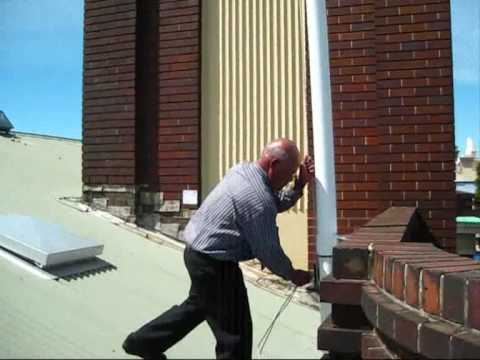West Papua 'Morning Star' flag raising - Marrickville Council, Sydney Australia 1 December 2008
West Papua 'Morning Star' flag raising - Marrickville Council, Sydney Australia 1 December 2008
Council Meeting - 09/08 - 18 November, 2008
NM 36 - MARRICKVILLE COUNCIL FLIES THE WEST PAPUAN FLAG ON 1 DECEMBER
EACH YEAR
For Decision
File Ref: 4056-03
From Councillor Max Phillips
Motion:
That
7051 RESOLVED: On the MOTION of Councillor Phillips, seconded by Councillor
Peters, THAT Council:
1. notes the ongoing occupation of West Papua by Indonesia and the fraudulent
nature of the 'Act of Free Choice';
2. condemns the ongoing repression of culture and human rights of the Melanesian
people of West Papua;
3. remembers the efforts the West Papuan people made to assist Australian and
Allied forces during World War II;
4. will raise and fly the West Papuan 'Morning Star' flag at Marrickville and
Petersham Town halls on 1 December each year to show Marrickville's solidarity
with the West Papuan quest for Independence;
5. writes to the Australian West Papuan Association to inform them of this decision;
6. invites a member of the West Papuan community in Australia to raise the flag;
and
7. writes to the Federal Government informing them of Council's decision.
For Motion: Councillors Iskandar, Thanos, Olive, Peters, Kontellis, Phillips,
and Byrne
Against Motion: Councillors Tsardoulias, Wright, O'Sullivan, Macri and Hanna
Background
West Papua is one of Australia's near neighbours. The Melanesian people of West Papua were first colonized by the Dutch. During World War II the Japanese occupied Northern West Papua until they were expelled by Allied forces. Many Australians were stationed in West Papua, including future Prime Minister Gough Whitlam.
General Macarthur constructed a headquarters and large base at Hollandia (now Jayapura) during World War II. The Melanesian people of West Papua assisted the allied war effort and allied troops. Many consider Australia to have a 'debt of honour' to the Melanesian people of West Papua.
After World Ward II the Dutch recolonised West Papua and began to prepare the country for
Independence. Unfortunately, West Papua became a pawn in the Cold War and the United States manoeuvred to hand West Papua to Indonesian control after a sham 'Act of Free Choice' was arranged by the Indonesian government.
Australia originally supported West Papuan Independence, but under pressure from the United States reversed its position in 1962. Since the Indonesian occupation, West Papuan nationalism has been brutally repressed. A large scale colonisation by non-Melanesian Indonesians has displaced many Papuans. Human Rights are repressed and discrimination is widespread. Academics such as Peter King and John Wing at the Centre for Peace and Conflict Studies at the University of Sydney consider the Indonesian occupation and actions in West Papua as close to genocide.
The Morning Star flag is the symbol of West Papuan Independence. It was first flown on 1 December 1961 along side the Dutch flag as a move toward Independence.
At that time the National Committee Chairman, Mr Inury said:
"My dear compatriots, you are looking at the symbol of our unity and our desire to take our place among the nations of the world. As long as we are not really united we shall not be free. To be united means to work hard for the good of our country,
now, until the day that we shall be independent, and further from that day on."
West Papuans have been killed, jailed, tortured and threatened for raising the Morning Star flag. West Papuans look to Australia for support and assistance in their quest for self-determination. They see Australia as a powerful nation in the region with influence in the global community and with Indonesia, especially after the Independence of East Timor. Unfortunately successive Australian governments have made human rights and self-determination for West Papua a very low priority.
Many Australians were alerted to the issue of West Papua with the arrival of refugees by boat in 2006. A poll of Australians conducted in April 2006 found that 77% of Australians support self determination for West Papua.
The content above from the originating party/author(s) may be of a point-in-time nature and edited for style and length. The views and opinions expressed are those of the original author(s). View original.
AusPol.co Disclaimer
